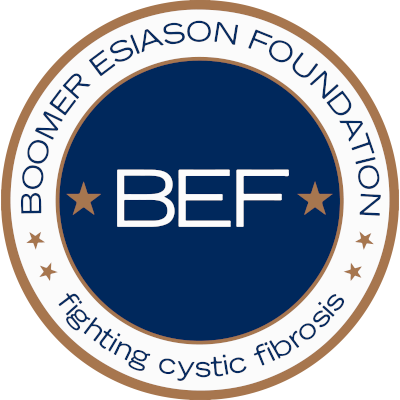SOURCE: PRESS RELEASE VIA PTS THERAPEUTICS
PTC Therapeutics Announces Results from Pivotal Phase 3 Clinical Trial of Ataluren in Patients Living with Nonsense Mutation Cystic Fibrosis
– ACT CF trial missed primary and secondary endpoints –
– Company to host conference call today, March 2nd at 9:00 am ET –
SOUTH PLAINFIELD, N.J., March 2, 2017 /PRNewswire/ — PTC Therapeutics, Inc. (NASDAQ: PTCT), today announced that the Ataluren Confirmatory Trial (ACT CF) in nonsense mutation cystic fibrosis (nmCF) did not achieve its primary or secondary endpoints. Ataluren was generally well tolerated and ACT CF confirmed a favorable safety profile for ataluren, which has now been used by more than 1,000 patients across multiple indications. PTC plans to discontinue current clinical development of ataluren in cystic fibrosis, close ongoing extension studies and withdraw its application for marketing authorization in cystic fibrosis in Europe.
“We are disappointed with the outcome of this trial as there are no treatments that target the underlying cause of nonsense mutation cystic fibrosis, one of the most difficult forms to treat,” said Stuart W. Peltz, Ph.D., chief executive officer of PTC Therapeutics. “We are particularly grateful to patients and investigators who participated in our trials. We remain committed to patients receiving ataluren in other indications.”
ACT CF was a double-blind, placebo-controlled, 48-week clinical trial comparing ataluren to placebo in nmCF patients six years of age or older not receiving chronic inhaled aminoglycosides. The Phase 3 study, conducted in 16 countries, enrolled 279 patients who were randomized to receive either ataluren or placebo. In the intent-to-treat population, the primary endpoint of lung function as measured by absolute change in percent-predicted FEV1 (forced expiratory volume in one second), over 48 weeks from baseline, there was a 0.6% difference in favor of ataluren versus placebo (-1.4% change on ataluren versus -2.0% change on placebo; p=0.534). For the secondary endpoint of rate of pulmonary exacerbations, there was a trend in favor of ataluren, with the rate in the ataluren group being 14% lower than the placebo group (p=0.401). The results were not statistically significant.
The safety profile of ataluren in the ACT CF study was consistent with previous studies and no new safety signals were identified.
About Cystic Fibrosis
Cystic fibrosis is among the most common life-threatening genetic disorders worldwide. It is caused by defects in a single gene known as the cystic fibrosis transmembrane conductance regulator, or CFTR. The CFTR gene encodes the CFTR protein, which is used by the body to transport chloride across cell membranes. Genetic mutations that result in the loss of function of the CFTR protein cause the body to produce abnormally thick and sticky mucus that clogs multiple organs, including the lungs, pancreas and liver. In particular, the absence or very low levels of CFTR leads to progressive loss of lung function, potentially life-threatening lung infections, permanent pancreatic damage and malnutrition because digestive enzymes from the pancreas do not reach the intestines to help break down and absorb food. The average age of death for CF patients is in their mid-thirties.
About ataluren (Translarna™)
Ataluren (brand name: Translarna™), discovered and developed by PTC Therapeutics, Inc., is a protein restoration therapy designed to enable the formation of a functioning protein in patients with genetic disorders caused by a nonsense mutation. A nonsense mutation is an alteration in the genetic code that prematurely halts the synthesis of an essential protein. The resulting disorder is determined by which protein cannot be expressed in its entirety and is no longer functional, such as dystrophin in Duchenne muscular dystrophy. Ataluren is licensed in the European Economic Area for the treatment of nonsense mutation Duchenne muscular dystrophy in ambulatory patients aged five years and older. Ataluren is an investigational new drug in the United States. The development of ataluren has been supported by grants from Cystic Fibrosis Foundation Therapeutics Inc. (the nonprofit affiliate of the Cystic Fibrosis Foundation); Muscular Dystrophy Association; FDA’s Office of Orphan Products Development; National Center for Research Resources; National Heart, Lung, and Blood Institute; and Parent Project Muscular Dystrophy.
About PTC Therapeutics
PTC is a global biopharmaceutical company focused on the discovery, development and commercialization of orally administered, proprietary small molecule drugs targeting an area of RNA biology we refer to as post-transcriptional control. Post-transcriptional control processes are the regulatory events that occur in cells during and after a messenger RNA, or mRNA, molecule is copied from DNA through the transcription process. PTC’s internally discovered pipeline addresses multiple therapeutic areas, including rare disorders and oncology. PTC has discovered all of its compounds currently under development using its proprietary technologies. PTC plans to continue to develop these compounds both on its own and through selective collaboration arrangements with leading pharmaceutical and biotechnology companies. For more information on the company, please visit our website www.ptcbio.com.
